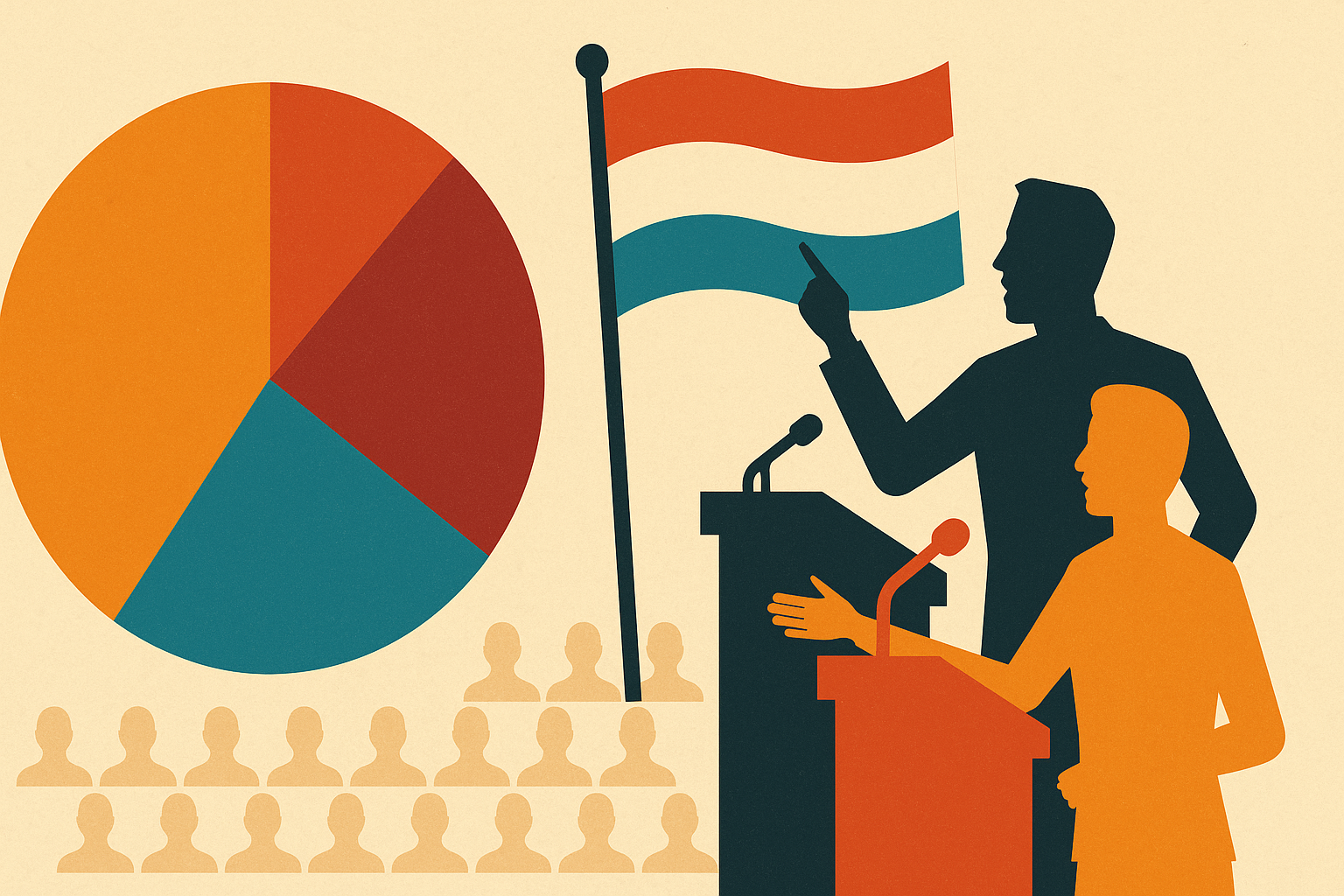The Netherlands appears to be steering back toward the political centre after a disappointing performance by Geert Wilders’ far-right Freedom Party (PVV) in parliamentary elections. With 98 per cent of votes counted, the liberal D66 party and the Freedom Party were tied for first place, each projected to win 26 seats in the 150-member Dutch lower house.
The results mark a sharp reversal for Wilders, whose nationalist coalition government collapsed in June and whose party is now expected to lose 11 seats compared to the previous election.
A Liberal Comeback Under Rob Jetten
Leading the D66 campaign was Rob Jetten, the former energy minister who positioned himself as a pro-European centrist with a message of optimism and renewal. His campaign slogan — “It is possible” — sought to inspire confidence in a country grappling with economic uncertainty and political fatigue.
Celebrating what he described as a “historic” result, Jetten said on Wednesday night:
“We have shown not only for the Netherlands but also for the world that it is possible to beat populist and extreme-right movements. I am eager to work with other parties to start a coalition as soon as possible.”
Jetten now faces the challenge of forming a coalition government, which must command at least 75 seats for a majority. Negotiations are expected to take several weeks, if not months, as parties seek to bridge ideological divides.
A Setback for Wilders and the Far Right
The election results dealt a blow to Wilders’ ambitions to consolidate his far-right influence. The Freedom Party, known for its hardline stance on immigration and Islam, had surged to prominence in 2023 but struggled to maintain unity once in power.
After winning last year’s election, Wilders was forced to abandon his bid for prime minister to form a coalition. He instead nominated Dick Schoof, a former intelligence chief with no party affiliation, as a compromise leader. The government, however, was plagued by internal disputes and collapsed after just 11 months in office.
Following the latest results, Wilders conceded disappointment but struck a defiant tone on social media:
“I had hoped for a different outcome,” he wrote on X, “but we are still the second party and might still end up the largest.”
Shifting Political Landscape
The centre-right VVD, once led by former prime minister and current NATO Secretary-General Mark Rutte, was forecast to take 22 seats, while the joint Socialist-Green alliance was projected to win 20, and the Christian Democrats (CDA) around 18 seats.
The results suggest Dutch voters are gravitating back to centrist and pragmatic politics after a year of instability under Wilders’ coalition. Analysts say the strong performance of Jetten’s pro-EU D66 reflects a renewed appetite for moderate leadership focused on economic stability, green energy, and international cooperation.
Meanwhile, Frans Timmermans, the former European Commissioner who led the Socialist campaign, announced his resignation after the disappointing results, stating:
“We did not succeed in convincing enough people to give us their votes. I take full responsibility for that.”
As coalition talks begin, the Netherlands faces a pivotal moment — one that could reshape the balance of power in The Hague and signal a broader European shift away from populism toward centrist governance.








